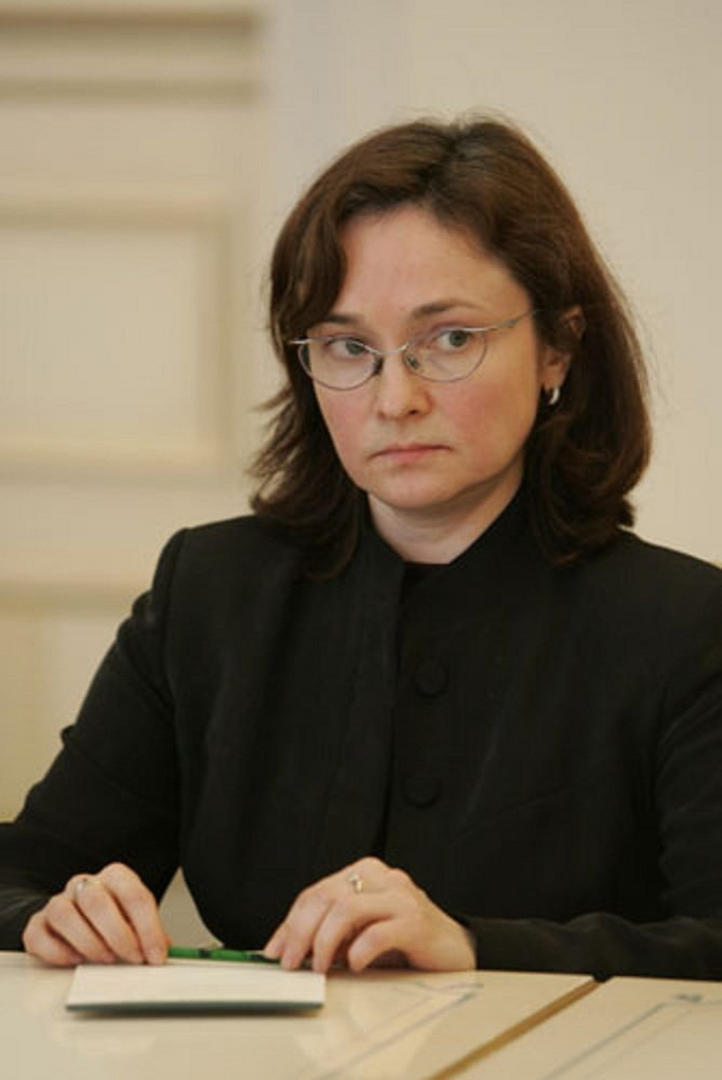
Russia's Reserve Bank president Elvira Nabiullina is listed as 60th most powerful woman in the world by Forbes / Wikimedia Commons
When I moved from the United States to Italy in 1992 to start work as a senior research scientist at the Centre for Advanced Studies, Research and Development in Sardinia , I thought I was getting an excellent deal.
My new salary was a substantial improvement over what I had been earning at Princeton University’s Program in Applied & Computational Mathematics in the United States.
I was being paid in Italian lire, but since Italy was part of the European Monetary System, this meant the currency was pegged to the French franc and the mighty Deutschmark. The lira was trading at about 1 000 to the US dollar.
Except the unthinkable happened. Two months after I moved countries, Italy jumped ship from the European Monetary System. The value of the lira plunged from 1 000/US$ to 1 600/US$. Overnight, I took a 40% cut in salary.
Or did I?
Personally, I was adversely affected, because I had debts to pay in the US — like a $3 000 shipping bill for moving six years of accumulated junk from the US to Italy as well as paying off my credit cards.
How was the average Italian affected? Volkswagens and Peugeots suddenly became more expensive because those had to be imported. Italians stopped buying those and switched to locally produced Alfa Romeos and Fiats instead.
But that was not all. Suddenly Fiat sales began to take off through Europe because Fiat's pricing was based on lire costs and profit margins. The lower lira made them more competitive.
Similarly, Italian wines, cheeses, pasta and concrete socks also became cheaper throughout the world.
The lesson for me was that a 40% fall in the value of the currency was actually good for the country, reducing foreign currency expenditure and increasing inflow of capital.
I’m recounting this story from years ago because Russia’s currency, the Rouble, has plummeted 24% against the US dollar over the past 5 days.
People who loathe Putin (which is nearly all of social media at this point) have been chanting out that inflation is going to follow and that it is the poorest Russians who will suffer the most.
They are wrong.
Inflation, basically, is the increase of the average price of a basket of goods and services in an economy over some period of time. A price rise means that the same amount of currency effectively buys less than it used to.
What has happened to the Rouble is devaluation. This is a downward adjustment of the value of one country's money relative to other currencies.
Devaluation of a currency frequently lead to inflation if the cost of importing commodities has a material impact on the economy. Case in point, the cost of imported petroleum products is currently one of the major drivers of inflation in South Africa. If the rand falls against the dollar, our fuel price goes up, and this has a knock-on effect on the entire economy.
Russia has no such triggers.
As I pointed out recently, Russia’s economy is almost entirely self-sufficient. (Read “Sanctions will hurt the US more than Russia” for the full data on why I say this.)
So, like my Italy example above, ordinary Russians are not going to feel any major effects from the fall of the Rouble.
Russia’s major imports are cars and vehicle parts, packaged medicines, broadcasting equipment, aircraft, and computers (2019 figures).
China provides 20% of Russia’s imports followed by Germany at 13% and Belarus at 6%. China and Russia already bypass the US dollar in their trade dealings, so that arrangement will not be affected. Belarus is already a vassal state of Russia, so ditto. India and Brazil will continue to trade directly with Russia , bypassing the dollar too.
Germany is still going to buy gas from Russia for the short term at least. That payment will come in Euros.
This is why I maintain Russia will not suffer much from this devaluation.
But here are the consequences:
- Russia will not be buying Volkswagens from Germany.
- Russia will no longer buy Gucci from Italy.
- Russia will no longer be buying gold .
- Russia is no doubt going to default on all loans and payments.
There’s a final thought I will leave you with: Russia is the world’s biggest exporter of wheat and Ukraine is the 6th largest. Those supplies are now effectively removed from the world stage. Add to that the fact that 3rdlargest exporter Canada has a 38% drop in production this year.
What do you think will happen to global food security in the near future?
